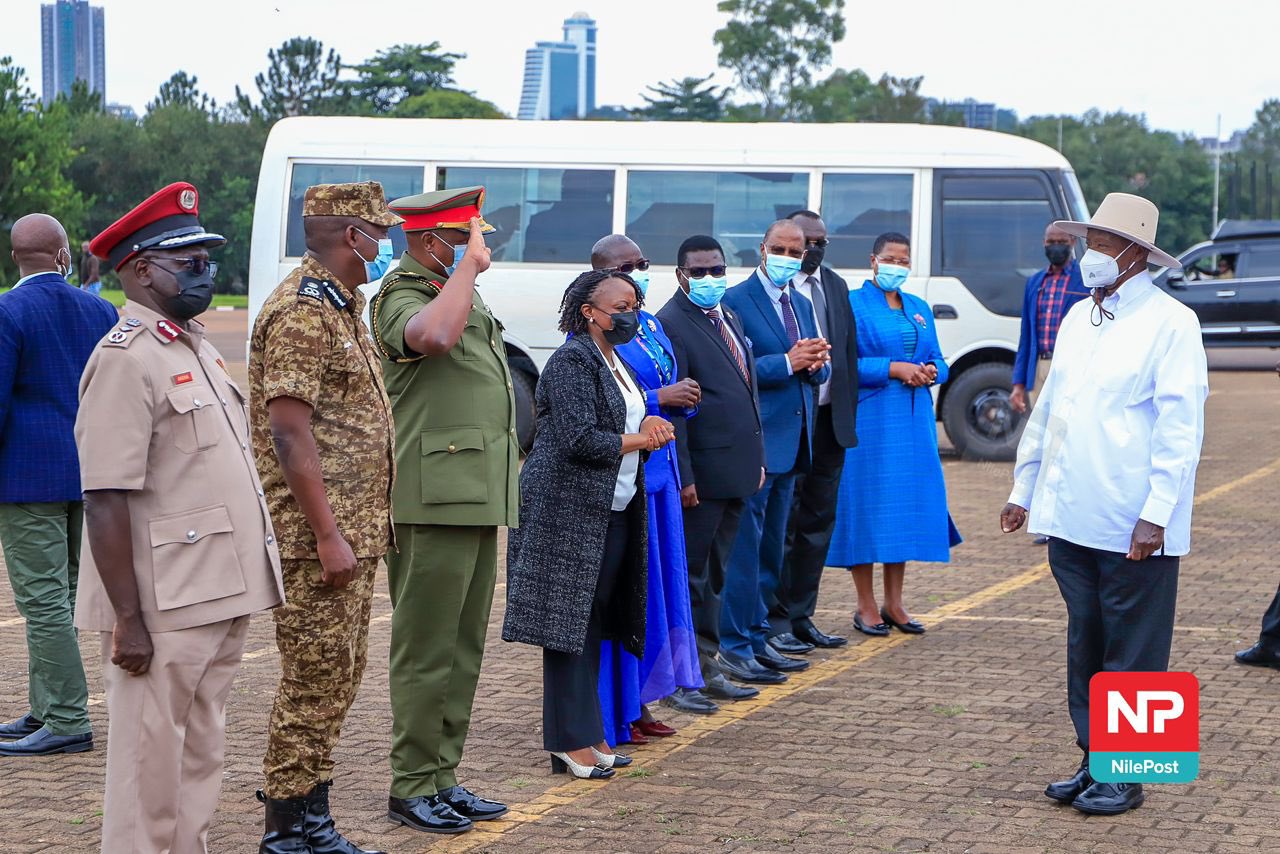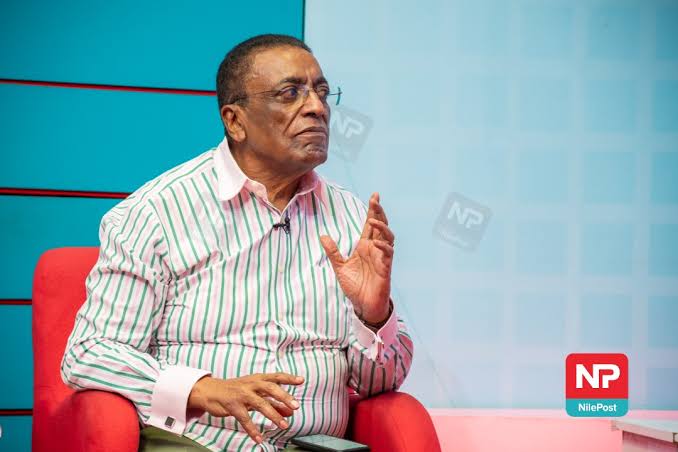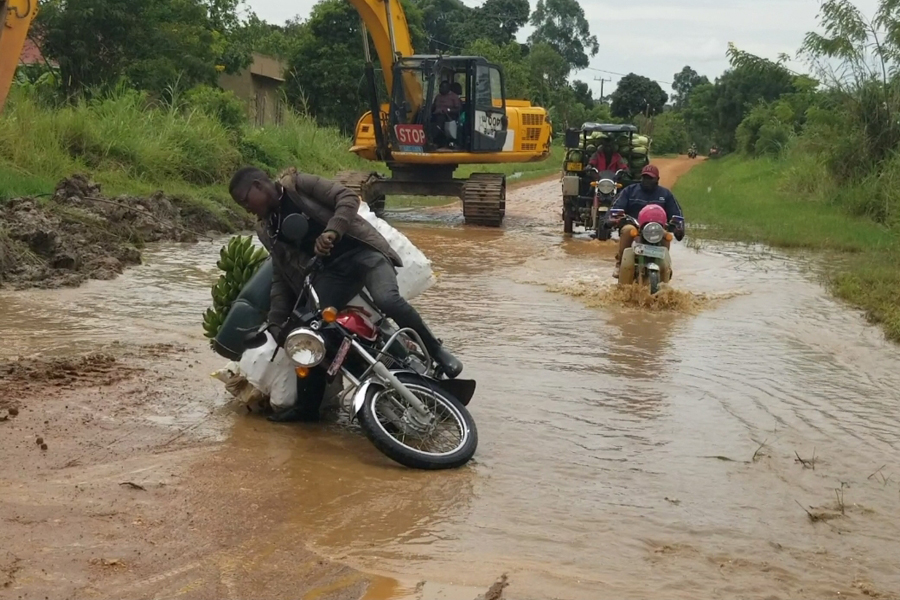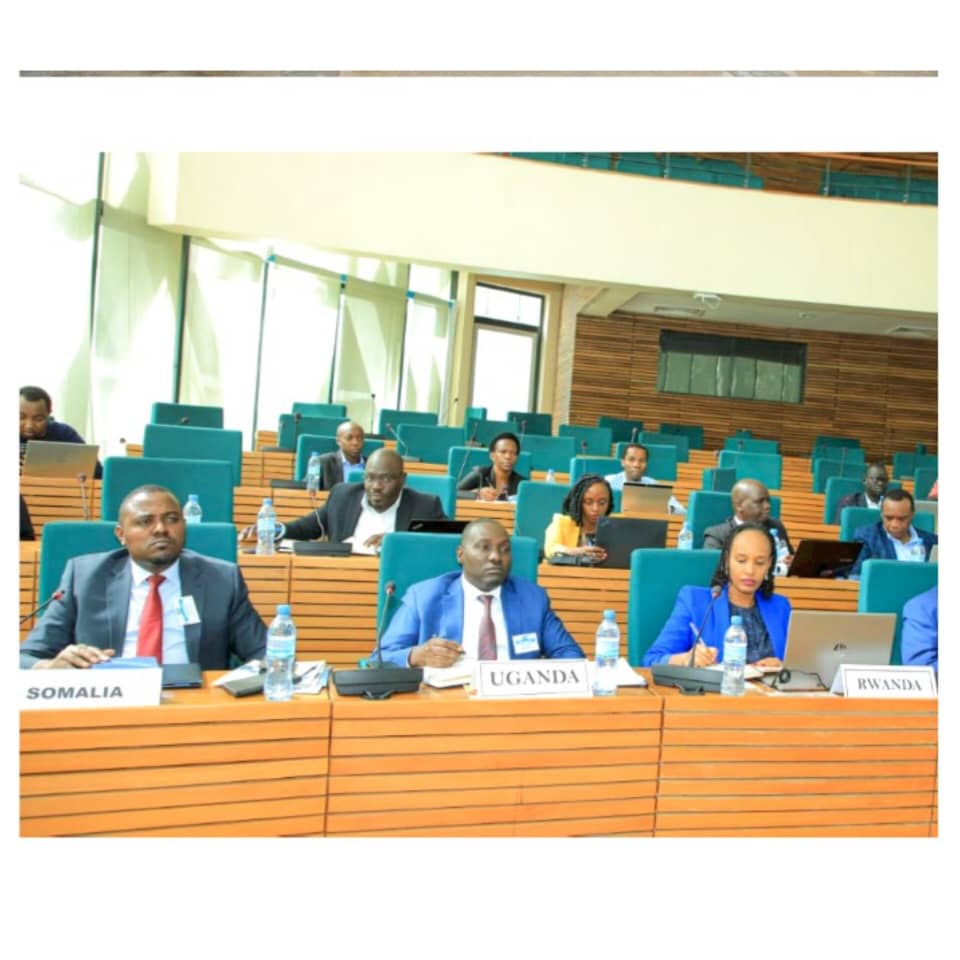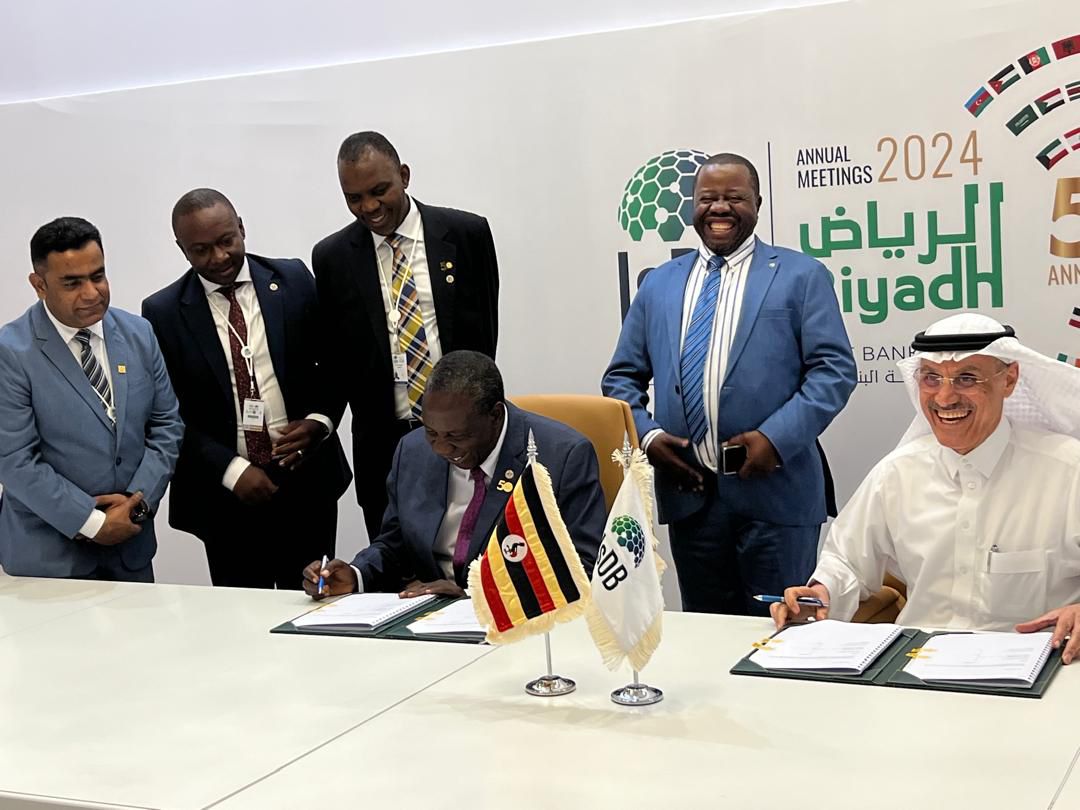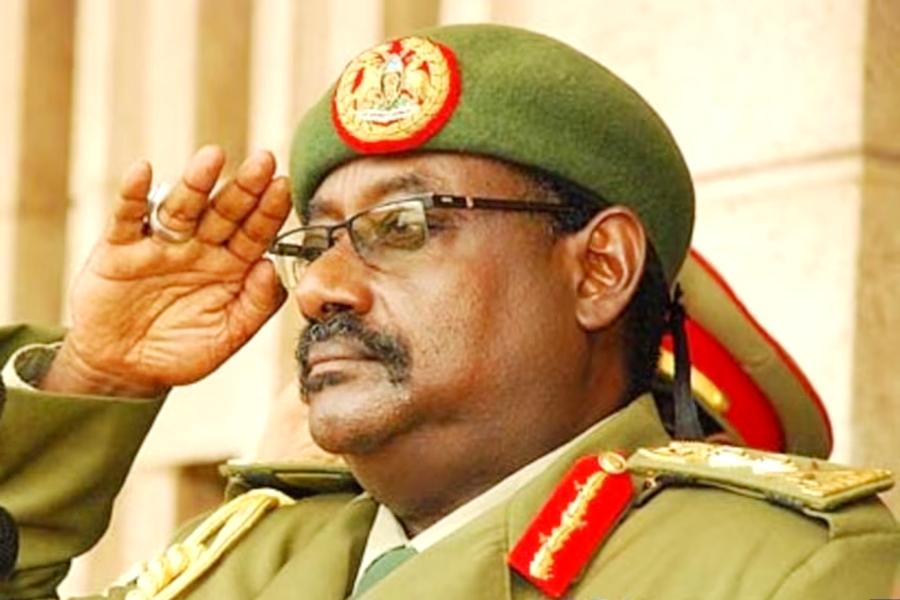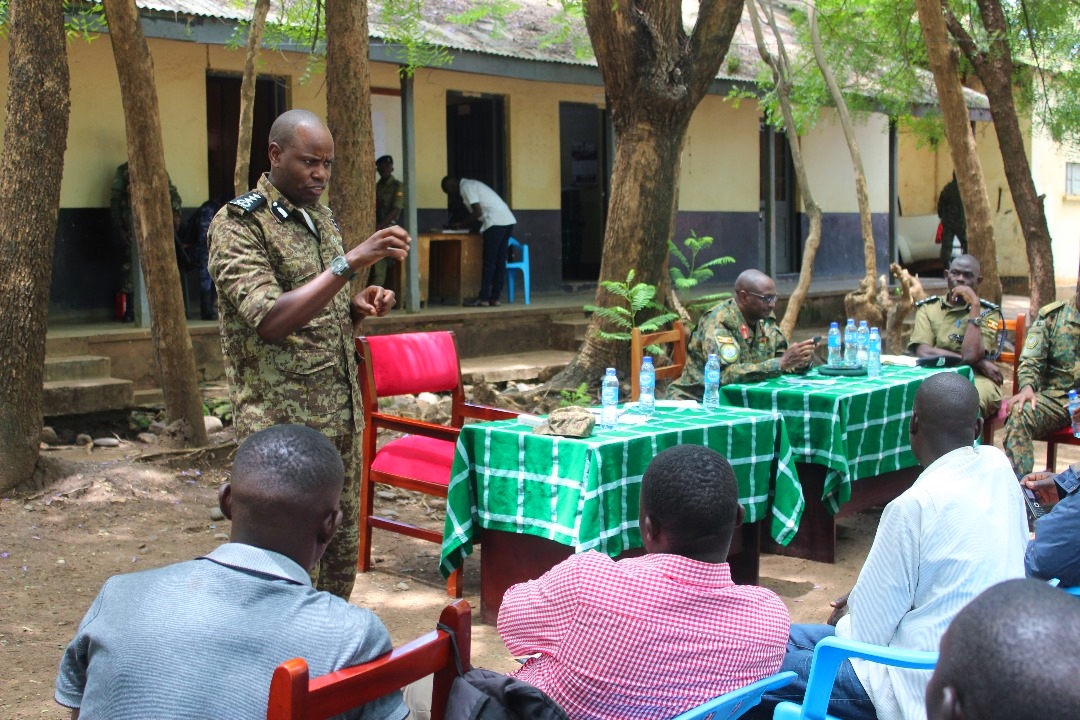Museveni in Kenya to solve “people’s real problems’
President Museveni has said his three days’ trip to Kenya was important because it was solving people’s real problems.
Museveni arrived Kenya through Moi International Airport in Mombasa where he was met by Kenyan counterpart Uhuru Kenyatta and their delegations.
Keep Reading
The two countries then signed a raft of agreements meant to ease trade, cement political ties and improve their social/cultural connections.
The agreements, clustered into three major categories; defence, trade and social affairs, focus on not only easing means of doing business between the two countries but also resolve some of the sticking issues that have hampered trade.
Speaking during the bilateral discussions at Mombasa State House, shortly before the agreements were signed, President Museveni said his trip to Kenya was important because it was solving people’s real problems.
“I thank President Uhuru for inviting me on this visit. It is not just about protocol. This visit will solve our people’s problems. I see a lot of work has been done.”
According to the agreements signed, Kenya will consider increase of its sugar quota imported from Uganda to 90,000 metric tonnes from the current 36,000 tonnes.
Uganda has been tasked to formally lodge a request to this effect that would create market for at least 54,000 metric tonnes of its surplus 90,000 metric tonnes it produces annually.
On the other hand, beef exporters in Kenya can expect to tap into the Uganda market after the latter was directed to lift its ban on beef and beef products from Kenya with immediate effect.
The poultry industry in Uganda will also have reason to smile after Kenya agreed to lift the ban on poultry products from Uganda within a week, dependent on Ugandan authorities furnishing then with necessary information making a case for the decision.
Another sector set to profit are the tile makers after it was agreed that a joint verification of their quality be conducted within two weeks and thereafter they can be exported to Kenya.
For dairy producers in Uganda it should be good news after Kenya agreed to do away with a host on non-tariff barriers that were affecting their exports. For example, they will no longer need authority from the Livestock Department of Kenya to export milk to the neighbouring country.
Kenya also clarified that it has resumed issuance of importation permits of dairy products from Uganda, which had stopped on February 1st this year.
However, it is not rosy news for those packaging alcohol in plastic sachets after both countries directed Uganda to ban this packaging by May 30th. The two countries will also develop modalities on fighting alcohol use and drug trafficking.
The other decisions arrived at focus on bettering the trade environment, including directives that Kenya reduces its numerous roadblocks that affect cargo destined for Uganda, it deploys more staff in Kampala to facilitate trade and allows more Ugandan clearing agents to access their systems.
Both countries' revenue authorities have also been directed to work jointly in enforcing land and lake patrols, continue improving the single customs system at borders, and closer cooperation of revenue officers at the coastal city of Mombasa.
Museveni calls for change in trade
During a Question and Answer session with journalists at Mombasa State House, Museveni lamented that Kenya, Uganda and Africa at large are giving away so much money by importing products which can be manufactured locally.
According to Museveni, Uganda spends about $130m (Shs483b) on importing paper from Finland whose weather condition doesn’t allow a tree to grow before 120 years.
“A tree in Finland takes 120 years to grow. The same tree in Uganda and Kenya takes about 7 years, but we are importing from Finland. Kenya had a paper milling factory in Webuye around Bungoma and it is now defunct. We are sleeping and need to wake up,” he said.
Museveni also said Uganda receives about $500m in revenue from coffee exports but spends about $800m in importing textiles, hence generating a $300m deficit. With this, he called for more investment in the processing industry for Africa and East Africa so as to increase trade and reduce costs on importing from Europe.
Security and Foreign Affairs
On this front, both countries among others agreed to ease the process of getting work permits for their nationals, harmonise methods of verifying temporary travel documents and formally communicate cases of repatriation.
Kenya was directed to originate a draft document in one month's time that makes clear a case for extradition and repatriation between the two countries.
With the biting vehicle thefts in Uganda, with most cars reportedly smuggled to Kenya, the countries have agreed to strengthen their border patrols to intercept stolen vehicles.
The pacts list some of the notorious porous border points in Busia like Marachi, Sofia and Alupe that must be watched religiously.
The countries have also agreed to develop formal guidelines within three months to help check human trafficking, with a call to arrest perpetrators. Uganda will initiate this document in the next three months.
On the social and cultural front, the key highlight was a request that Kenya ensures a harmonization of fees charged on Ugandan students at its public universities.
The agreements were a result of discussions between officials of both countries under the Kenya-Uganda Joint Ministerial Commission that began on March 21st in Kenya.
Foreign Affairs Minister, Sam Kutesa, led the Uganda team while his Kenyan counterpart, Monica Juma, headed her country's team.
Uganda's delegation also included Presidency Minister Esther Mbayo, Deputy Attorney General Mwesigwa Rukutana, Internal Affairs State Minister Obiga Kania and Housing State Minister Chris Baryomunsi.


